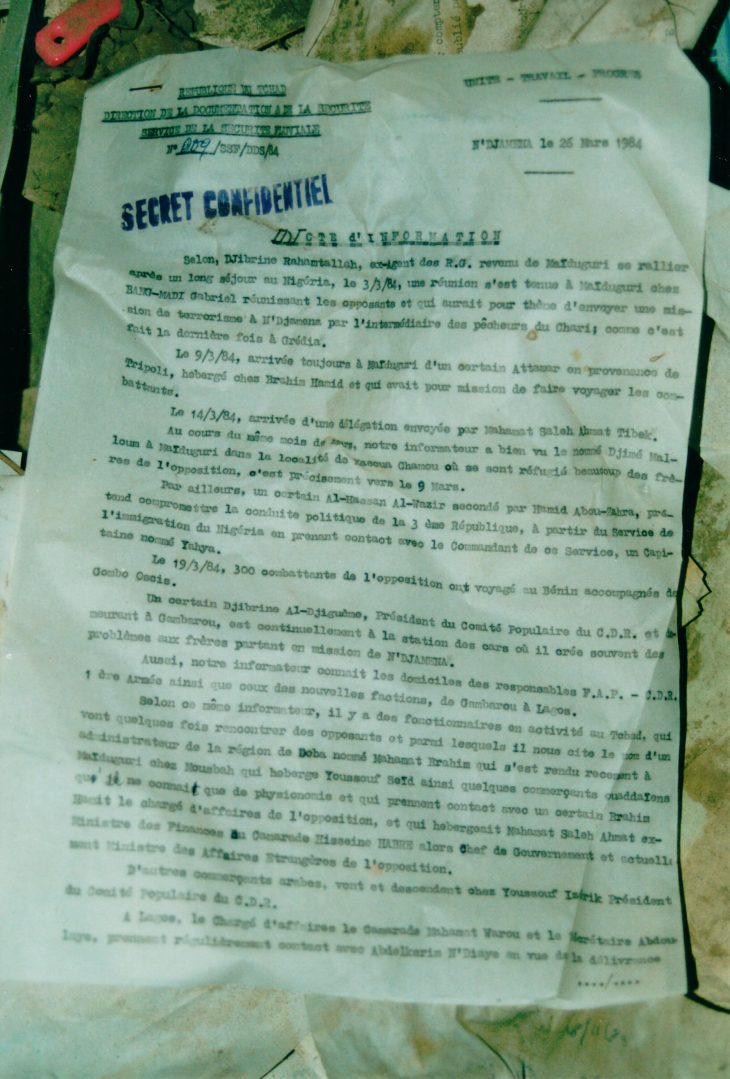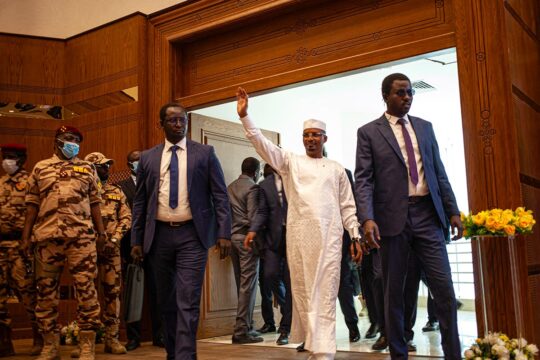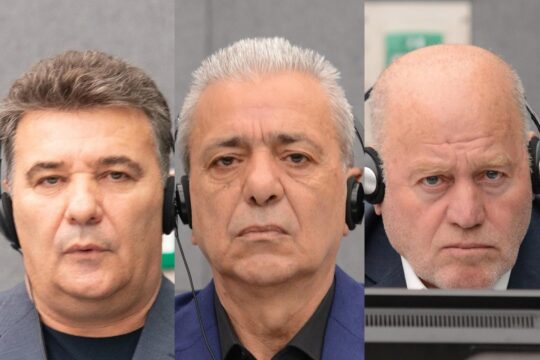As former Chadian president Hissène Habré’s war crimes trial continues before the Extraordinary African Chambers in Senegal, JusticeInfo.Net recently spoke to Senegalese human rights defender and Amnesty International regional director Alioune Tine about this historic event. Today we hear from Professor Gregory Steven Gordon, an International Law expert who teaches at the Chinese University of Hong-Kong and has previously worked for the Office of the Prosecutor at the International Criminal Tribunal for Rwanda (ICTR).
JusticeInfo.Net: What is the significance of the on-going Habré trial?
Gregory Gordon: This trial is extremely important both for the international community and for Africa in particular. From a global perspective, this is an important milestone in international criminal law history. It is to my knowledge the first time a regional intergovernmental organization (the African Union) has entered into an agreement with a domestic jurisdiction (Senegal) to create an ad hoc court to try international crimes – the Extraordinary African Chambers in the courts of Senegal. And it is all the more significant given that the defendant is a former head of State. That this is taking place in Africa is equally amazing. From an African perspective, this could be seen as representing Africa's first major step in taking ownership of regional international crimes prosecutions. Thus, it could be a harbinger of greater domestic efforts to deal with large-scale human rights violations in a region disproportionately beset with such violations. Given the limited resources of the International Criminal Court, as well as criticisms that the ICC is too focused on Africa (a kind of neo-imperialist critique), a more regional approach could be a very positive development. And it could eventually lead to creation of a permanent regional criminal court and/or the institution of pure universal jurisdiction prosecutions in other parts of Africa.
JusticeInfo.Net: Some critics say it is victor’s justice, since current Chadian President Idriss Deby is not in the dock. What is your view on that?
GG: Since the epochal Nuremberg proceeding after World War II, international criminal justice has been often critiqued for being mere "victor's justice”. It is true that Realpolitik always factors in, to varying degrees, in terms of the defendants who are actually prosecuted for international crimes. But that does not mean that such prosecutions should not be undertaken. In a perfect world, all defendants culpable for international crimes would be brought to book. But such an outcome is simply not realistic. In the meantime, given considerations of resources and politics, certain ground-breaking trials have taken place and established important precedents that will help develop international criminal law. I believe the Habré case may end up being one of those. In my opinion, in trying Habré, the African court represents all of humanity, not just Africa. That said, given the atrocity crimes that have victimized millions of Africans over the centuries, including the more recent ones committed by Habré in Chad during his reign of terror, there is something especially gratifying about the fact that an African court will sit in judgment of him. It is not so much a question of victors and vanquished as it is of justice and memory.
JusticeInfo.Net: Do you think this special tribunal is really independent?
GG: The Extraordinary African Chambers (EAC) were given a specific mandate -- to prosecute "the person or persons most responsible" for international crimes committed in Chad during Habré's rule. The chief prosecutor did seek to indict five other members of Habré's government implicated in relevant crimes. But, for various reasons, including Chad not being willing to extradite to Senegal in certain cases, as well as the location of certain suspects being unknown, only Habré will be in the dock. I do not think that is owing to a lack of "independence" of the EAC. Rather, we can chalk it up to the usual transnational enforcement constraints placed on institutions that would prosecute atrocity crimes committed in other jurisdictions. That is a problem the global community needs to work on. In the meantime, we must do the best we can with the resources and roadblocks that exist.
JusticeInfo.Net: African dictators are generally not pursued by the law until after they leave office, in other words, once the harm has been done. What will it take for that to change? Do you think an African court with a criminal justice mandate could be a solution? And how independent would it be?
GG: The sense of license that African leaders feel in committing atrocity crimes stems in large part from a culture of impunity that still pervades on the continent. And it is not limited to Africa – that culture of impunity still reigns worldwide. I do believe, however, that there is deterrent value in international criminal prosecutions. The fruits of such a deterrent effect may not be reaped right away. But we must start somewhere. The post-Cold War efforts to prosecute gross human rights violators is a work in progress. Many want results immediately but that is asking too much. And merely because results are not achieved immediately does not mean we should abandon the enterprise. But if this noble endeavour is to achieve two of its foundational goals – bringing about justice and deterrence – it must have regional and domestic justice efforts added to the mix. The world cannot rely on the International Criminal Court to achieve all this by itself. So, along with universal jurisdiction prosecutions and traditional hybrid courts, a permanent tribunal created by the African Union, to prosecute international crimes committed in Africa, could be a welcome development.
JusticeInfo.Net: So, is the ICC, as some people say, the least horrible solution?
GG: I do not think it's a question of the least horrible solution. I do think the ICC is a crucial component of an entire holistic solution. It must always be remembered that the ICC is essential as a "safety net," if you will, to ensure that justice efforts are undertaken on the domestic level. The domestic level should be the focus but it is not always possible due to resource or political considerations. So we need the ICC. But if domestic efforts continue not to be feasible in enough situations, then we may need to think of alternatives. A regional criminal court, working with an organization such as the African Union, could be a novel way of dealing with this problem. Either way, it is significant that the EAC has finally seen the light of day in this case. If justice is done with respect to Hissène Habré, there will be much more hope for future regional success in Africa's ongoing struggle to end the culture of impunity.







